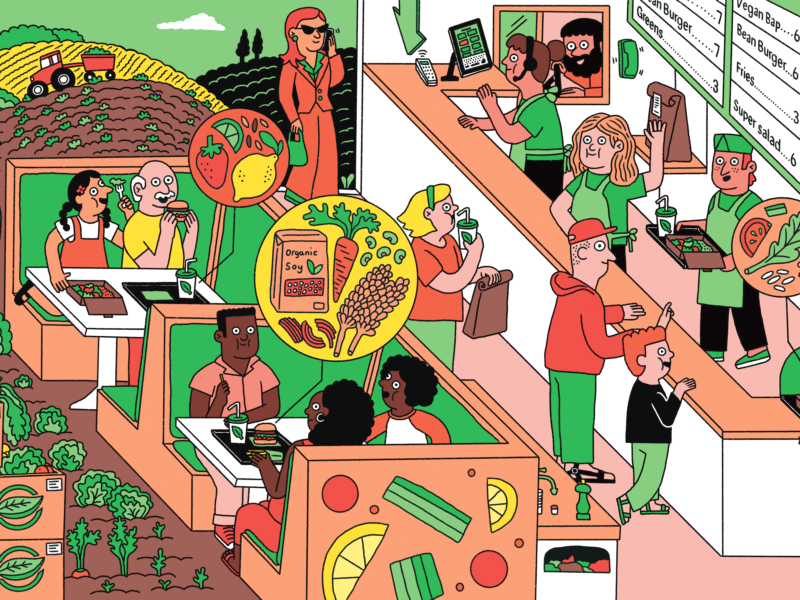Compassion seems to be the common theme in the articles ANI has curated for this week’s look at journalism that goes beyond reporting the problem by presenting possible solutions. A non-profit initiative in Oklahoma helps chronically homeless children catch up on essential life skills; an editor suggests the means of making a story about a white teenage boy who supports Trump more insightful and thoughtful; a Finnish study on basic income suggests that alleviating poverty is an effective means of combating depression; and perhaps there is a simple solution for the crisis of student debt in the United States.
- When Esquire profiled a 17-year-old, white, male Trump supporter from middle America earlier this month, there was an uproar in liberal circles. Why do we need to hear the thoughts of this ‘privileged’ teenager? Why aren’t we hearing the voices of young men of color? But the real problem with the profile, writes Alexandra Tempus in this thought-provoking op-ed, is not who it’s about; the problem is the magazine’s failure to provide any context or meaningful insight that might help the reader understand the circumstances that created this young man and his worldview. If it had provided that insight, it would have been an example of valuable journalism.
- A non-profit initiative in Oklahoma City established a school for homeless children. The idea is to help kids who have been living with the chaos of chronic homelessness by providing an environment that allows them to catch up developmentally and re-enter the mainstream school system. The school provides cooking lessons for students and families who might never have lived in a home with their own kitchen; it also provides washers and dryers and a place to socialize outside of school hours, all with the intention of helping kids grow academically and socially, in spite of the uncertainty in their home life. One way the school made sure they were meeting student needs? They asked the kids what they wanted. Read the story at Fast Company.
- With student loan debt soaring, one school is operating on a whole new model: tuition is free, until you land a good job. Andrew Ross Sorkin explains the concept and how it works in this intriguing New York Times op-ed.
- When poverty is alleviated, depression levels decline. This is one of the conclusions presented in the results of a Finnish study on basic income. According to the study, “recipients [of basic income] reported a 37 percent reduction in depression levels, a 22 percent improvement in confidence for their futures, and an 11 percent bump in faith in politicians,” Fast Company reports.
- The epidemic of loneliness is now widely viewed as a public health threat with consequences as bad or worse than smoking and obesity. But how can one build the communities that are essential for combating loneliness in our increasingly atomized, frenetic society? One answer, according to this Bloomberg report, is to throw a party.



